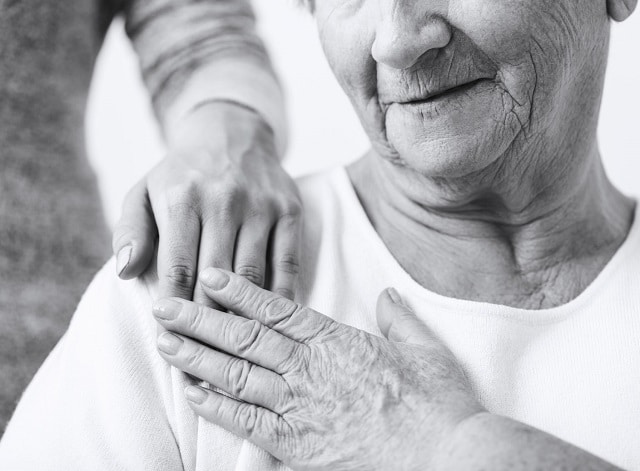
According to the Social Security Administration, American men reaching the age of 65 today can expect to live, on average, until they’re 84. For women, the life expectancy is 86. Yet that longevity comes with complications, including rising medical and elder care costs, born primarily by a struggling American healthcare sector and increasingly, American families.
One tribal program available to Native Americans via the Citizen Potawatomi Nation is seeking to alleviate the challenges for primacy caregivers to loved ones who are confined to their home. Operating under the CPN Title VI Elder Program, the CPN Caregiver Program offers respite care for those taking care of their loved ones on a day-to-day basis.
The program is funded by federal grants available through the U.S. Department of Health and Human Services. CPN receives an average of $55,000 annually from the Administration of Community Living for its Caregiver’s Program under HHS. As long as either the patient or their primary care giver is a member of a federally recognized tribe, they are eligible. According to the latest statistics from the U.S. Census, there are more than 7,300 eligible tribal elders – aged 60 or older – living inside the CPN’s service area.
One of the biggest challenges the program has faced since its implementation at CPN is the lack of use by those who are eligible. As program supervisor Tami Fleeman noted, one common reason is tied to afflictions impacting many elders.
“People with dementia don’t do well with new people coming in, and so their families just don’t use the program as much as we would like,” she said.
There have been those who have utilized the Caregiver Program to help care for their loved one as well as themselves though.
Hubert Hightower is the primary care giver for his wife, Jean, a Citizen Potawatomi Nation tribal member who remains confined to their home in Oklahoma City.
“The good thing about the program is we got to choose a care giver, a niece of mine, for my wife. It’s just working great because she seems to like coming here and my wife really enjoys it,” said Hightower.
Prior to enrolling in the program, he explained that the challenge for his family was during the week when his four children were unable to assist due to their own work schedules. Following an assessment by the CPN Title VI Elder Program, which oversees the caregivers, the Hightowers hired their niece to help. She stays with Jean for two hours a day, three days a week, allowing Hubert to run errands such as buying groceries. He’s also able to keep up with his own exercise regimen, where he walks about 25 minutes a day, done in part to stay in good enough shape to maintain his health.
Fleeman, a registered nurse who oversees the CPN Title VI Program, noted the importance of Hubert’s desire to stay active.
“Being a primary caregiver can be extremely stressful,” she said. “Very often they do not want to leave the loved one and might refuse efforts to give them relief. The prolonged stress can start to cause major medical problems for the caregiver.”
The list of afflictions for those caring for loved ones who are bed or home bound are extensive. They include back pain from lifting the person their caring for and stress related symptoms like insomnia, headaches and high blood pressure. If these continue over the long term, the caregiver runs the risk of becoming a patient themselves.
“Our goal is to give them the ability to take time for themselves whether it is for appointments, going to lunch with friends or whatever it is they need to recharge their batteries so they can fulfill their role as long as possible,” said Fleeman.
When it comes to what the program actually entails, the Title VI Program has shaped the assessment, enrollment and implementation to meet the needs of each individual family. Once approved for a caregiver, that individual – which can be a friend or family member of the patient – the CPN Caregiver Program and the patient sign a contract that states the pay rate and what hours will be worked. Typically they call for four to six hours a week, which are logged by the caregiver on a time sheet. They then submit the time sheet to the CPN program, who then cuts a check directly to the caregiver.
The programs typically run about three months in duration, but can be reassessed and renewed. Alternatively, if the circumstances call, the family can be given more choices for respite care.
The caregivers typically take care of minor tasks around the house in addition to sitting with the patients, including small chores and making meals. As long as it is agreed upon in the initial contract, the tasks are up to the family and the caregiver.
On occasion Fleeman has had to counsel families that the program is not a home cleaning service or yard maintenance program, but is there primarily to provide a brief bit of respite for a family with a homebound member.
“You know, you’re kind of concerned to just hire someone to come in that you don’t know,” explained Hubert Hightower. “So it’s just a great program in my opinion, because it allowed us to hire my niece, and that was the best part because my wife so enjoys seeing her.”
If you’d like to learn more about the Citizen Potawatomi Nation Caregivers Program, please contact the CPN Title VI Elder Program by calling 405-214-5111 or email program director Tami Fleeman at tfleeman@potawatomi.org.
